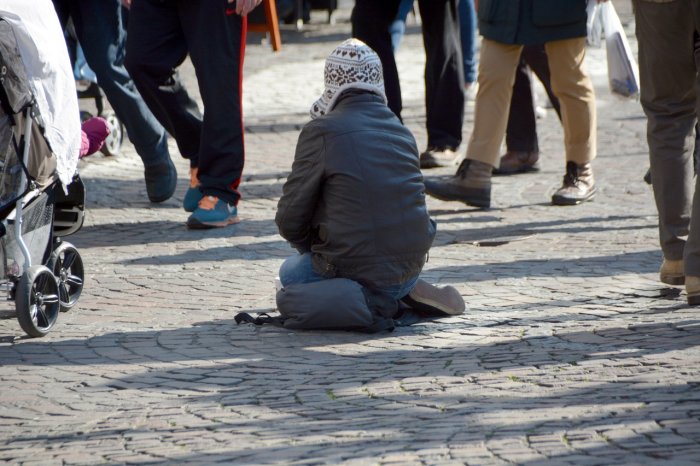KSH: 26.3% of Hungarians at risk of poverty or exclusion

In 2015 there were 2.54 million people in Hungary who were at risk of poverty or social exclusion, representing some 26.3% of the entire population, a summary of household living standards data published by the Central Statistical Office (KSH) reveals, according to Hungarian news agency MTI.
The data show that the proportion of Hungarians who are at risk of poverty or social exclusion dropped by 1.9 percentage points compared to 2014.
According to the website of Eurostat, the EUʼs statistics office, "at risk of poverty or social exclusion," abbreviated as AROPE, refers to the situation of people either at risk of poverty, severely materially deprived, or living in a household with very low work intensity.
In line with these international standards, the KSH likewise uses three sub-indicators to measure poverty: income poverty after social transfers, serious deprivation of material goods, and living in households with very low work intensity.
The KSH found that in 2015, 16.2% of Hungarians were experiencing serious material deprivation, 14.5% were poor relative to incomes, and 6.1% were living in households with very few job opportunities. Categories could overlap, with some 1.9% of Hungarians, or 185,000 people, falling into all three categories.
Poverty levels peaked at 34.8% in 2012 in recent years. The ensuing decline, to 26.3% in 2015, reflects mostly a reduction in the share of those experiencing serious material deprivation.
The data show that the risk of poverty is higher among minors under 18 years old, single-parent households, those with low educational qualifications, the unemployed and members of the Roma (Gypsy) minority.
In 2015, some 33.6% of people younger than 18 fell into the AROPE category. For those aged between 18 and 64, the proportion was 27.2%, while for those older than 65 years it was 15.1%.
A breakdown based on the type of households shows that 62.3% of single-parent households were at risk of poverty or social exclusion, well above the 30% proportion of single people or the 29.7% share of households with children overall.
Poverty levels were visibly lower with higher educational levels. Last year 43.1% of people with a primary education experienced poverty or social exclusion, but only 22.8% of those with a secondary education, and 9.9% of those with a tertiary education.
In 2015, around 18.4% of employed people were at risk of poverty or social exclusion, but the share for unemployed people was as high as 70.4%. Some 18% of pensioners fell into the AROPE category.
Among the Roma minority, the share of those who are at risk of poverty or social exclusion was more than three times the national average, at 82.8% last year, only slightly down from 83.7% in 2014.
SUPPORT THE BUDAPEST BUSINESS JOURNAL
Producing journalism that is worthy of the name is a costly business. For 27 years, the publishers, editors and reporters of the Budapest Business Journal have striven to bring you business news that works, information that you can trust, that is factual, accurate and presented without fear or favor.
Newspaper organizations across the globe have struggled to find a business model that allows them to continue to excel, without compromising their ability to perform. Most recently, some have experimented with the idea of involving their most important stakeholders, their readers.
We would like to offer that same opportunity to our readers. We would like to invite you to help us deliver the quality business journalism you require. Hit our Support the BBJ button and you can choose the how much and how often you send us your contributions.







